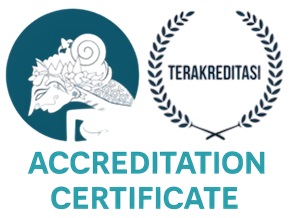Penegakan Hukum Pidana terhadap Penjualan Bahan Bakar Minyak Eceran secara Ilegal
Abstract
The limited number of fuel filling stations (SPBU), the distance traveled and the time needed to get to the gas station, emergencies requiring fuel, plus wishes. Some people who prioritize time effectiveness and practicality are the reasons some people are reluctant to queue at gas stations. This then becomes a lucrative business opportunity and becomes additional income for some people to sell retail fuel using used plastic bottles which are sold on the side of the road. The types of retail fuel that are traded include Premium, Solar, Pertalite, to Pertamax. Basically, retail oil business activities, if you do not have a business license, can be punished according to the provisions of Article 53 of Law Number 22 of 2001 concerning Oil and Gas Earth. This type of legal research is normative legal research. The nature of the research in this study is analytical descriptive in nature. The type of data used in this research is library research. Judging from the legal factor, Law Number 22 of 2001 concerning Oil and Gas and its implementing regulations have correctly stipulated the rules for the legal distribution of fuel; law enforcement factors, namely the police are not running optimally because until now there has been no report regarding the illegality of retail fuel sales; the factor of facilities or facilities that support law enforcement is not running as it should because the law enforcement process that was initiated by complaints and reports related to the illegality of Retail BBM has not occurred; and community factors that prioritize the practicality of obtaining fuel oil (BBM) including corrupt cultural factors between consumers, Pertamini entrepreneurs, and unscrupulous staff at Fuel Filling Stations (SPBU) which also support the existence of illegal Pertamini. The effort to overcome the legality obstacle is the issuance of regulations that open opportunities for the sale of gasoline on a small scale to the general public through Regulation of the Downstream Oil and Gas Regulatory Agency Number 6 of 2015 concerning Distribution of Certain Types of Fuel Oil and Types of Fuel Specially Assigned to Areas where there are no distributors . Efforts to overcome legal awareness are repressive efforts through criminal liability and the application of criminal sanctions that violate the provisions of Article 23 of the Oil and Gas Law.
Downloads
Copyright (c) 2023 Yoga Artha Ijaya, Yasarman Yasarman, Anggawira Anggawira

This work is licensed under a Creative Commons Attribution-ShareAlike 4.0 International License.











